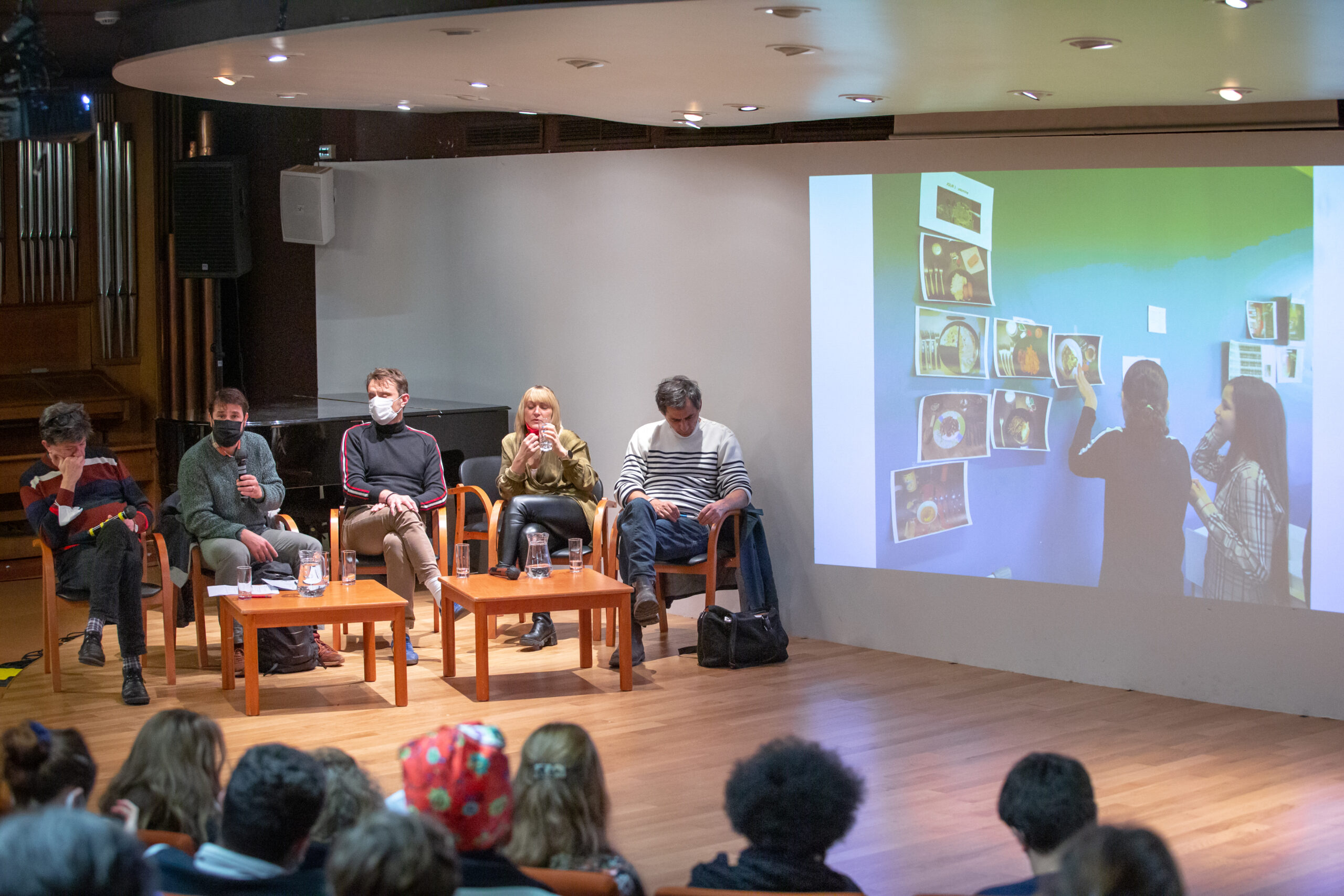 What culture-based solutions can artists provide today to transform food territories and imagine the sustainable food of tomorrow?
What culture-based solutions can artists provide today to transform food territories and imagine the sustainable food of tomorrow?
New Gastronomies: Arts, Food, and Ecological Territories is the result of a program that reports food today through the prism of art and ecology. This program was created during a dedicated day, on December 8, 2021, at the International City of Arts in Paris.
Through more than twenty workshops, culinary experiences, artistic performances, and films, round tables have been organized to deepen the reflection around this theme. These discussions brought together farmers, scientists, peasants, artists, and promoters of cultural projects from Europe and elsewhere. Through this multiplicity of perspectives and this cultural diversity, the guests were able to discuss practices and demonstrate the potential of solutions based on the culture in the transformation of food territories.
In this conference, it was a question of seeing in what forms art and science combine through the various projects of the speakers. They play a major role in research-creation around the socio-ecological transformation of food territories. The speakers were able to share the diversity of their work under the moderation of Pierre Hivernat.

Xavier Fourt: He is an artist, a doctoral student in social sciences (EHESS). With Léonore Bonaccini, they form the artist duo Bureau d´études. For many years, this collective has produced maps of contemporary political, social, and economic systems. The use of the organizational chart allows them to account for the complexity of our modern reality, by highlighting the links that unite an apparent heterogeneity of factors and actors. Xavier Fourt is also the founder of La Ferme de la Mhotte in Saint-Menoux (FR), where a group of people organizes their uses together to bring out a social project at the crossroads of culture, agriculture and education.
Thierry Boutonnier: A farmworker, he financed his studies at the National School of Fine Arts in Lyon and at the Concordia University in Montreal. Graduating in 2005, he then took off to Portugal, New Jersey, Lower Normandy, and the Tarn. On the strength of intense cooperation, he carries out actions and objects in interdependence with ecosystems such as Lausanne Jardin (2009), Naturel Brut (2010), or Polyculture (2011). His work has been shown in Canada, Germany, Poland, Switzerland, at the Paris Biennale (2006) and that of Rennes (2010) or at Fiac (2011). In 2010, he won the COAL art and environment prize for his project “Take roots!”, In Lyon, and has since collaborated frequently with COAL. For the Grand Paris Express, he created Appel d’Air, a perennial, lively, and sustainable work that accompanies the Grand Paris Express from the first site in 2016 until the opening of the entire network in 2030. The work Appel air is designed in tandem with the architects Pauline Marchetti and Jacques Ferrier, consultants in architecture and design of the Grand Paris Express stations. He conveys a wide range of different behaviors in reaction to the capitalist system: analysis, play, combat, mimesis, resignation, irony, crisis…; Considering that artistic acts have the same demands in terms of project or portfolio management (in terms of know-how, decision-making process, sharing, production / distribution, storage, innovation, etc.). He is a non-specialist artist who employs a “multi-tasking” attitude; capable of various means to adapt to the constant changes of the real competitive economy: performance, videos, sculptures, images and photographs, diagrams, or publication.
Giulia Mengozzi: is assistant curator at PAV – Parco Arte Vivente – which is an experimental center of contemporary art. She is also the founder of the collective ALMARE, an association hinged on contemporary practices that employ sound as an art medium.
Olivier Givre: He is an anthropologist, lecturer at the Lumière Lyon 2 University and researcher at the UMR EVS (Environnement Ville Société). His research mainly concerns South-Eastern Europe and focuses on ritual and religious dynamics, political and symbolic borders, heritage and memory processes, ecological and environmental issues. He is also interested in research-creation practices and the relationship between scientific and artistic approaches.
Pierre Hivernat: He is a journalist, he was Head of Section at the magazine Les Inrockuptibles from 1995 to 2000. Director of programming for the park and the Grande Halle de la Villette in Paris until 2007, he was the artistic director of the candidacy of Marseille-Provence as European Capital of Culture 2013. Founder and editor-in-chief of the first issue of Alimentation Générale, an independent and participatory magazine, which deals with all political, sociological, economic and cultural subjects related to food, he has also chronicled cooking for Médiapart and for the Omnivore guide. Until May 2014, he was Development Director of the daily Liberation.





